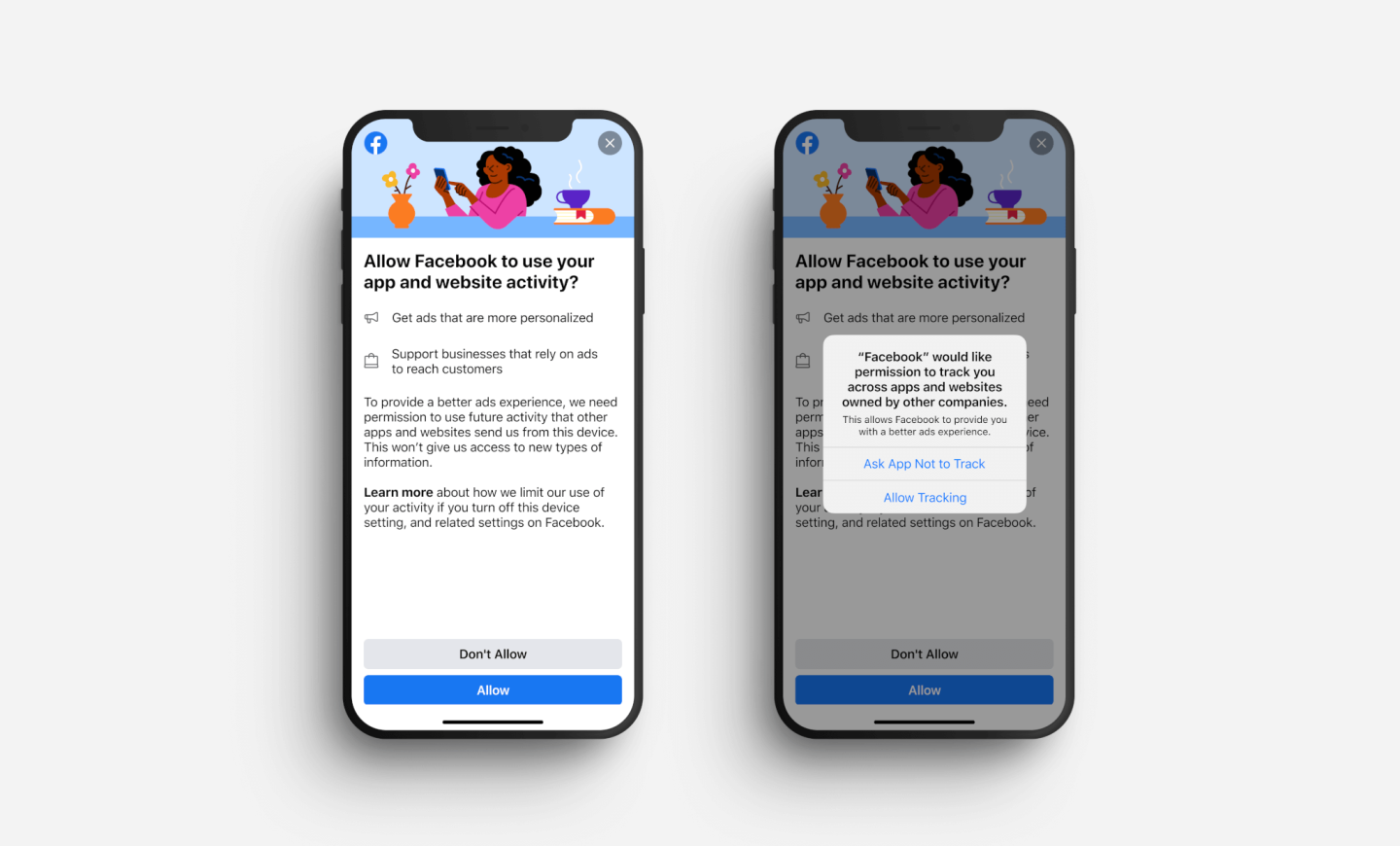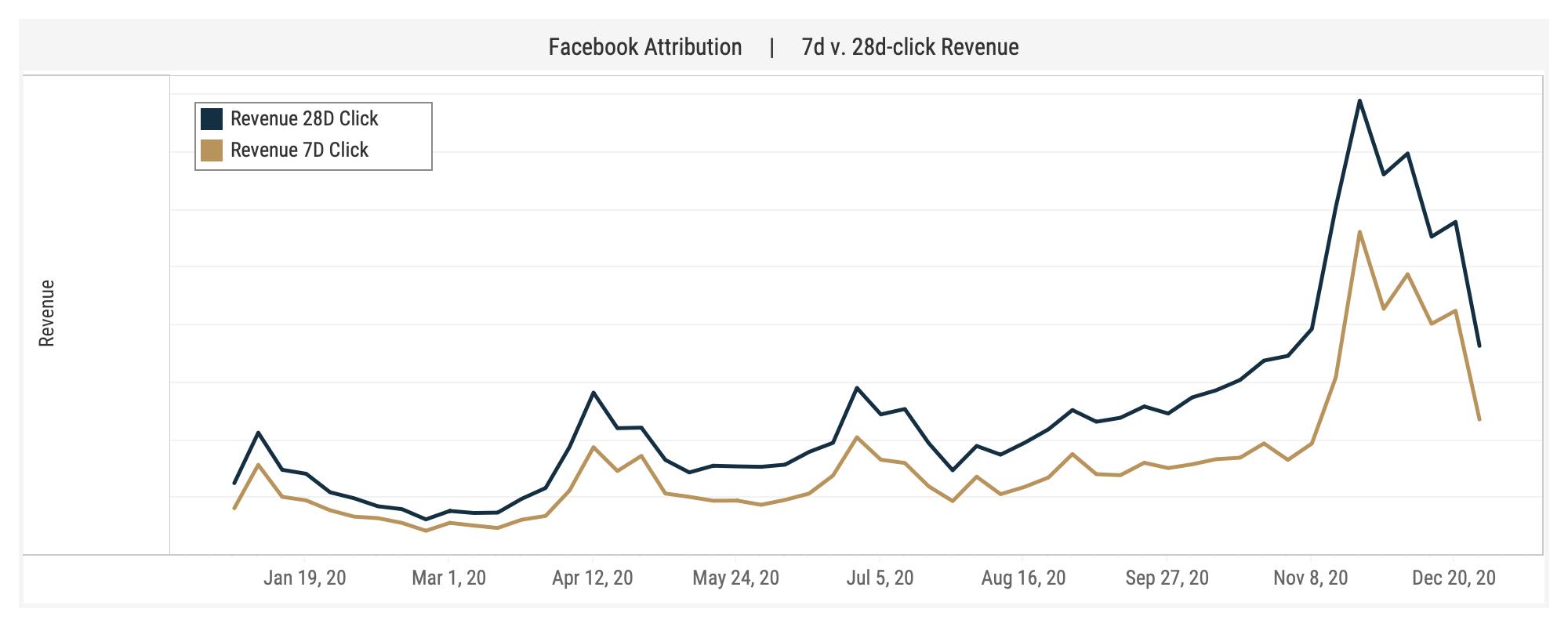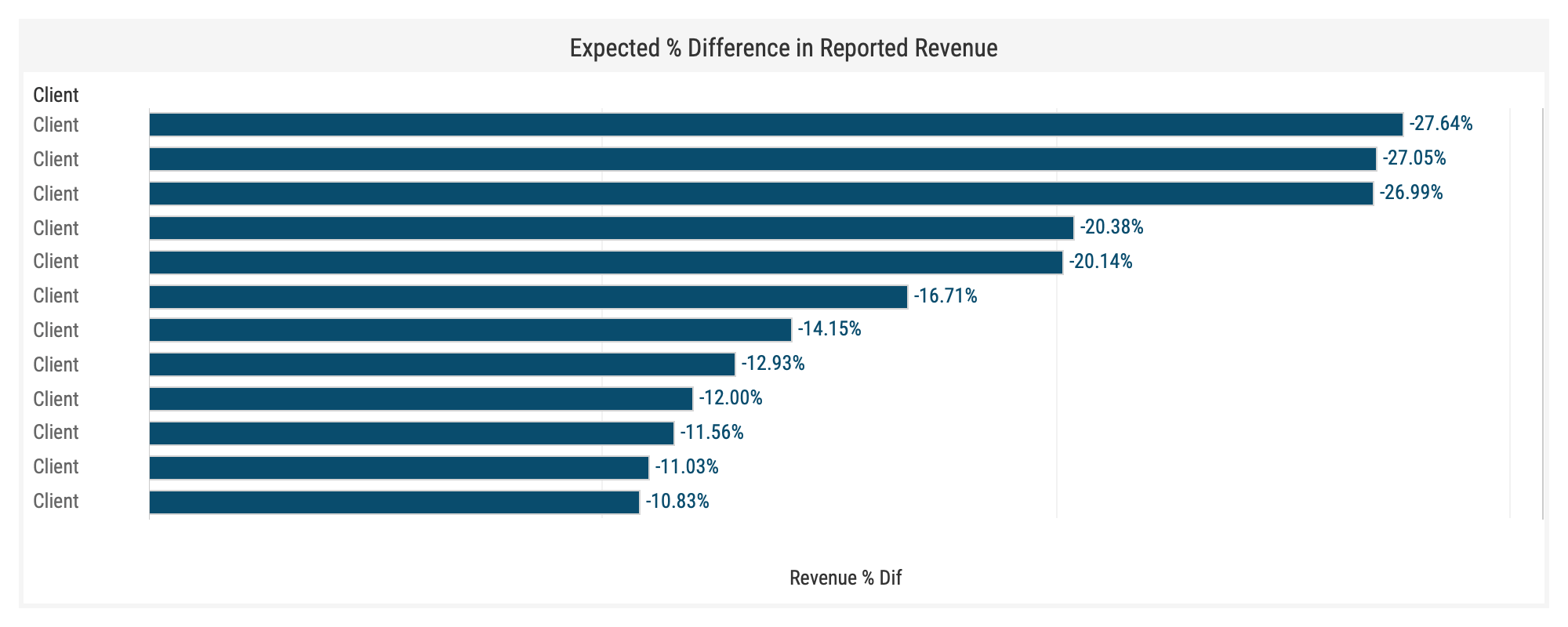iOS 14 data use changes: What are they and why is everybody talking about them?

Starting this year, when iOS (iPhone) users upgrade to the newest version of iOS 14, they will get a prompt when they first open any app along the lines of: “Facebook would like permission to track you across apps and websites owned by other companies. Your data will be used to deliver personalized ads to you.” Then, users will have to choose an answer: “Allow Tracking” or “Ask App Not to Track.”
As a user, how would you answer this question? The expectation is that many users will opt out, a choice that will have implications across the advertising landscape. This report will focus on the specific impacts we are anticipating from the Facebook API’s compliance change across three major categories: reporting, optimization and targeting. Please note, the majority of Backbone e-commerce clients do not have an owned app, so this analysis will only address the impacts of the iOS 14 updates for clients optimizing around standard conversion events on their websites.
How will the iOS 14 changes affect reporting?
One of the most tangible effects of Facebook’s platform change is a universal curtailing of the window in which conversion events are tracked after an ad is served. The industry standard has typically been a one-day-view, 28-day-click attribution setting in the platform. Facebook’s new API will migrate all brands to a one-day-view, seven-day-click attribution setting. The big question this change poses is: how much revenue do our clients typically see post-click, between the seventh and 28th day? The answer: more than you’d think.
On average for Backbone clients in 2020, 21% of total revenue was recorded seven days post-click. In other words, when we shift to one-day view, seven-day click, we will see on average of 21% less total revenue recorded in the platform than before. As you can see in Chart 1, this delta between seven-day-click and 28-day-click revenue was particularly accentuated last fall (September through November 2020).

In 2020, not all Backbone digital media clients recorded the same percentage of revenue between seven and 28 days post-click — in fact, we saw a wide range. The major factors that drove the larger difference for advertisers were: 1) average order value, and 2) prospecting/remarketing media mix. Typically, higher-ticket items will have a longer purchase cycle (for example, most of us will spend more time debating the purchase of a paddleboard than a pair of gloves). Similarly, it will usually take a brand-new user longer to convert than someone with a strong sense of brand and product awareness. Thus, brands with higher AOVs with a larger focus on prospecting generally see the widest delta between seven-day and 28-day click.

Further, our ability to apply breakdowns to revenue reporting will now be limited due to the changes in Facebook’s API. Previously we could share certain insights such as “7% of spend and 9% of revenue were recorded among users 25 and under” (or similar for male/female, DMA, etc.). Now, this data will only be available as it relates to delivery (spend) vs. action (revenue). You can find more information about Facebook’s reporting changes here.
How will these changes affect optimization and targeting?
Another major change to Facebook’s API is the number of conversion events that any brand may use for campaign optimization. Except in cases where using custom events (joining a wish list, completing a sign-up, finishing a video, etc.) is the norm, this shouldn’t be a major concern for most e-commerce brands. It should also be noted that the attribution changes discussed above will have effects beyond reporting. The Facebook algorithm will essentially have 21% fewer conversion events to optimize from, which could potentially limit performance, particularly for smaller-scale advertisers.
More concerning, however, is the expected decrease in the size of remarketing pools, as more users opt out of app tracking. Theoretically, users who opt out may remain as “prospects” in the funnel organization forever, despite visiting a brand’s site, engaging with ads, watching a video or even making a purchase. At this time, we can only estimate the impact this will have on the overall platform targeting efficiency. It will be a difficult variable to isolate, but one tactic could be tracking Google Analytics revenue to look for any decrease in performance across all campaigns.
On the flip side, it is likely we will see higher performance going forward from prospect groups as transactions from opt-outers with increased brand/product awareness will be captured here. All in all, the main action item from this change will be to measure performance and adjust expectations by campaign as the changes go into effect.
Will the iOS 14 update impact Google advertising?
As a company, Google is taking a different approach to complying with Apple’s iOS 14 changes. Google is fully removing many of the more specific tracking components (IDFA) from their apps to avoid showing the opt-in/out prompt. As Google is not primarily used as an app the way Facebook and Instagram are, Google is expecting “much lower impact” across search, shopping, display and YouTube campaigns, at least for advertisers who are not optimizing around an app-download event.
What steps should my brand be taking and where can I learn more?
The most helpful tool we’ve found to date has been Facebook’s iOS checklist, which gives brands the steps they need to take to ensure they are complying with all the changes. From this list, we are recommending all clients prioritize domain verification in Facebook as well as determine their top eight conversion events. We are also encouraging all brands to look at the historical percentage of click revenue they would see “after the seventh day” and adjust expectations for 2021, knowing this revenue will no longer be visible. Backbone’s teams will adjust reporting to ensure we’re looking at a single window for all year-over-year comparisons.
We’ve found that the below articles provide useful insight and commentary. Facebook’s changes are continuing to roll out every day and we’ll make sure to update this article as we learn more.
Facebook Ads and the Impact of iOS 14 (Jon Loomer)
Facebook Tests Pop-Up for iPhone Users Before Ad Tracking Update (Bloomberg)
This report on iOS 14 data tracking from Backbone’s digital media team is part of a series of updates that provide data-driven insights and experience-based anecdotes to help brands and marketers. If you have feedback or questions, please send us a note at info@backbonemedia.net.


